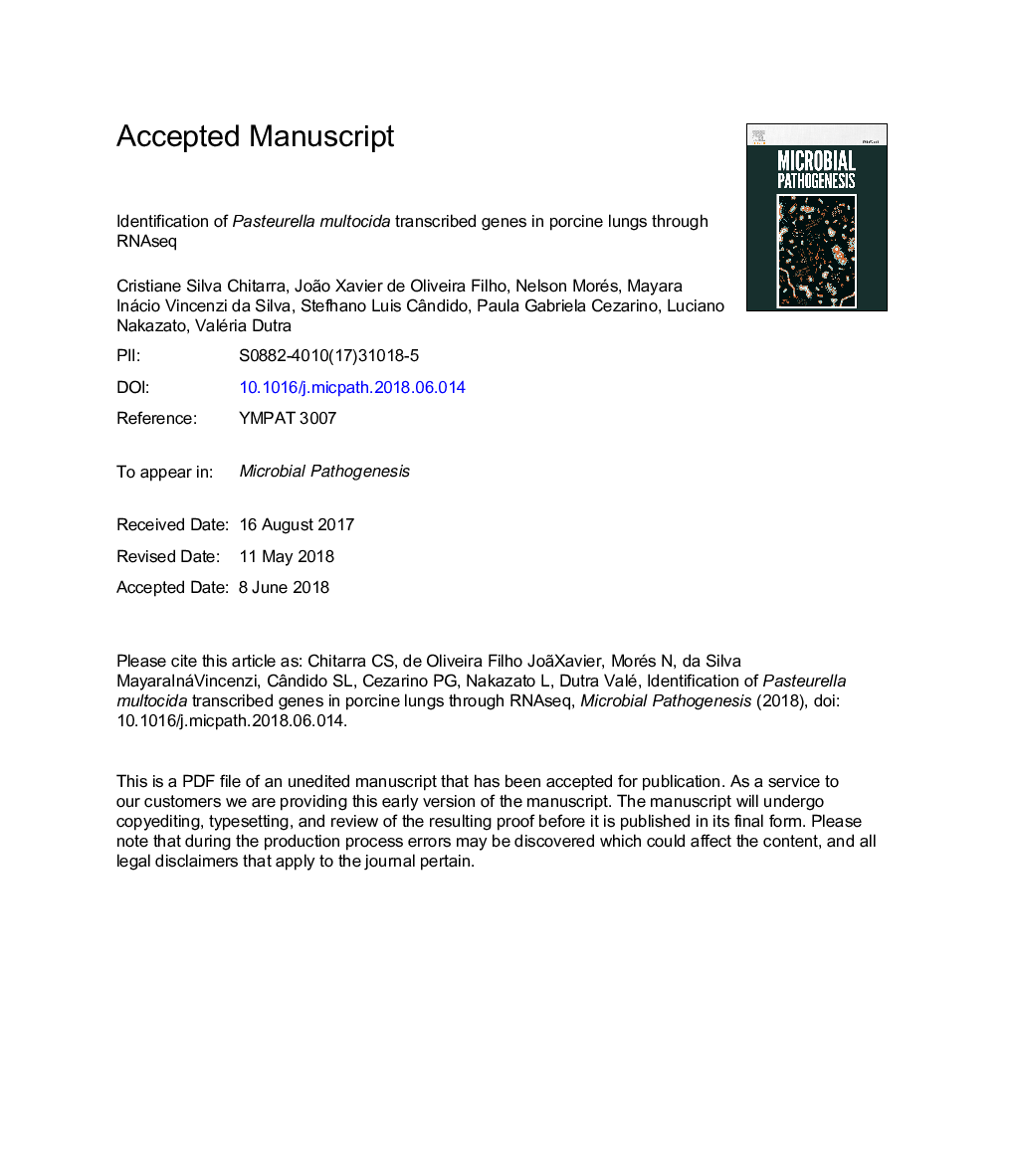| Article ID | Journal | Published Year | Pages | File Type |
|---|---|---|---|---|
| 8749310 | Microbial Pathogenesis | 2018 | 15 Pages |
Abstract
Pasteurella multocida is one of the most important pathogen that causes pneumonia in swine. Although several virulence factors are known, the pathogenesis of this bacterium is not well-studied. Therefore, to study the pathogenesis of P. multocida infection in porcine lung, next-generation RNA sequencing was used to compare the transcriptomes of P. multocida grown in vivo and in vitro, respectively. After P. multocida infection a total of 704 genes were expressed in vitro, 1422 genes were expressed in vivo, and 237 genes were differentially expressed based on statistical analyses, padj of â¤0.1. Genes encoding ribosomal proteins or other products that function in the regulation of transcription and translation were downregulated, whereas genes whose products affected cellular processes (protein transport and RNA degradation) and metabolic pathways, such as those of amino acid metabolism and nucleotide metabolism, were upregulated in vitro compared with in vivo. This study shows that differentially expressed genes in P. multocida regulate pathways that operate during stress, iron capture, heat shock, and nitrogen regulation. However, extensive investigation of the pathogenic mechanism of P. multocida is still required.
Related Topics
Life Sciences
Immunology and Microbiology
Microbiology
Authors
Cristiane Silva Chitarra, João Xavier de Oliveira Filho, Nelson Morés, Mayara Inácio Vincenzi da Silva, Stefhano Luis Cândido, Paula Gabriela Cezarino, Luciano Nakazato, Valéria Dutra,
